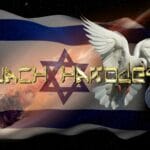This foundational phrase, “Baruch Atah Adonai Eloheinu Melech Ha’olam,” meaning “Blessed are You, Lord our God, King of the Universe,” is a cornerstone of Jewish prayer and ritual. It’s a powerful expression of gratitude, acknowledgment of the divine, and a key to understanding Jewish spirituality. This article explores its meaning, origins, variations, and enduring significance in Jewish life.
The Essence of Jewish Prayer
“Baruch Atah Adonai Eloheinu Melech HaOlam.” This seemingly complex phrase is the heart of Jewish prayer. It’s more than just words; it’s a profound expression of gratitude and connection to something greater than ourselves. It serves as a bridge between the everyday and the sacred, reminding us of a divine presence in all aspects of life.
Delving into the Meaning
Each word in “Baruch Atah Adonai Eloheinu Melech HaOlam” carries weight and significance, building upon one another to create a powerful statement of belief. It affirms God as not only the creator but also the sustainer of the universe, the ultimate authority. This acknowledgment fosters deep thankfulness for blessings both large and small.
A Journey Through Time
While the phrase feels timeless, its consistent use likely emerged around the 5th century CE. Its roots, however, can be traced back to the 1st century CE with the development of the Siddur, the Jewish prayer book. This period laid the foundation for the blessings we know today, with “Baruch Atah Adonai Eloheinu Melech HaOlam” finding its central place. It connects us to countless generations who have uttered these same words, forming a chain across centuries.
Adapting the Core Blessing
“Baruch Atah Adonai Eloheinu Melech HaOlam” serves as a flexible foundation for other blessings. Like a musical theme, it’s adapted and expanded upon for specific occasions. Adding phrases like “Hamotzi” for bread (bringing forth bread from the earth) or “Borei Pri Hagafen” for wine (creating the fruit of the vine) enriches the core message, linking specific actions to the divine. The “Shehecheyanu” blessing, recited for special occasions, adds “…who has granted us life, sustained us, and enabled us to reach this occasion,” expressing awe and appreciation. This adaptability showcases the dynamic nature of Jewish tradition.
A Living Legacy
This phrase isn’t a relic of the past; it’s a vibrant part of Jewish life today, connecting individuals to a heritage spanning millennia. It weaves through Jewish practice, offering continuity and belonging. Reflecting on how this phrase resonates personally can deepen one’s understanding of gratitude and relationship with the divine. It opens a window into the rich tapestry of Jewish faith.
| Blessing | Added Phrase | Meaning |
|---|---|---|
| Hamotzi | …who brings forth bread from the earth. | Expresses gratitude for sustenance. |
| Borei Pri Hagafen | …who creates the fruit of the vine. | Gives thanks for the gift of wine. |
| Shehecheyanu | …who has granted us life, sustained us, and enabled us to reach this occasion. | Acknowledges God’s role in our lives and celebrates milestones. |
Ongoing research into Jewish liturgy may reveal further nuances of these blessings.
What is the Most Powerful Prayer in Hebrew?
The idea of a single “most powerful” Hebrew prayer is complex. Like any language, power resides not just in the words themselves but in their usage, context, and the speaker’s intention. Prayer, a conversation with the Divine, derives its power from sincerity and kavanah (focused intention), not merely the specific words. While no single prayer holds universal supremacy, certain prayers are considered especially significant. The Shemoneh Esrei (Amidah), recited three times daily, covers gratitude, praise, requests, and hopes. The Kaddish, often associated with mourning, affirms faith and life’s continuity. However, personal prayers, spoken from the heart, are incredibly powerful, offering a direct line to God. The common phrase, “Baruch atah Adonai Eloheinu, melech ha’olam,” acts as a foundation for many blessings, reminding us of God’s presence, but its power comes from the context and individual intention. The most powerful prayer is likely the one spoken with utmost sincerity and kavanah, whether traditional or personal. This remains a complex topic, with ongoing research and varying perspectives.
| Prayer | Description |
|---|---|
| Shemoneh Esrei (Amidah) | Recited three times daily, covering various themes. A central part of Jewish liturgy. |
| Kaddish | Often associated with mourning, but affirms faith and life’s continuity. |
| Personal Prayers | Unscripted prayers from the heart. |
| Baruch atah Adonai… | “Blessed are You, Lord our God, King of the universe.” A common phrase anchoring many blessings. |
How Do You Respond to Baruch Atah Adonai?
“Baruch Atah Adonai Eloheinu Melech Ha’olam” initiates a dialogue with the Divine. The most common response is “Amen,” affirming the blessing. However, context matters. The words following “Baruch Atah Adonai” specify what’s being blessed, shaping the meaning. Understanding this context allows for a more meaningful response. While “Amen” is always appropriate, deeper understanding enriches our connection to the ritual. Specific prayers or phrases may follow, adding another layer of meaning. Jewish tradition is rich with blessings, each tailored to an occasion, with “Baruch Atah Adonai” serving as the common thread. Understanding these nuances allows for a deeper dialogue with the Divine. For example, the blessing for washing hands (Netilat Yadayim) continues with “…asher kid’shanu b’mitzvotav v’tzivanu al netilat yadayim” (who has sanctified us with commandments, and commanded us to wash hands), highlighting purification. Ongoing research into these blessings continues to illuminate their significance.
| Occasion | Blessing Addition |
|---|---|
| Washing Hands (Netilat Yadayim) | “…asher kid’shanu b’mitzvotav v’tzivanu al netilat yadayim” |
| Lighting Shabbat Candles | “…asher kid’shanu b’mitzvotav v’tzivanu l’hadlik ner shel shabbat” |
| Wine (Borei Pri Hagafen) | “…borei pri hagafen” |
What Do Jews Say Before Eating?
Jewish tradition emphasizes gratitude for sustenance. Before eating, Jews recite blessings (Brachot) acknowledging the divine origin of food. This transforms eating into a spiritual moment. The most common phrase is “Baruch Atah Adonai Eloheinu Melech Ha’olam.” For bread, the Hamotzi blessing is recited: “Hamotzie lechem min ha’aretz” (Who brings forth bread from the earth). For other foods, the Shehakol blessing is used: “Shehakol nihiyah bed’varo” (By whose word all things came to be). Specific blessings exist for various foods, reflecting an appreciation for God’s creation. Even handwashing before meals has a dedicated blessing, Al Netilat Yadayim. Variations in wording exist across Jewish communities. Ongoing research continues to explore the evolution of these blessings.
| Food | Hebrew | Transliteration | English |
|---|---|---|---|
| Bread | המוציא לחם מן הארץ | Hamotzie Lechem Min Ha’aretz | Who brings forth bread from the earth |
| Wine/Grape Juice | בורא פרי הגפן | Borei Pri Hagafen | Who creates the fruit of the vine |
| Fruit from a Tree | בורא פרי העץ | Borei Pri Ha’etz | Who creates the fruit of the tree |
| Vegetables from the Earth | בורא פרי האדמה | Borei Pri Ha’adama | Who creates the fruit of the earth |
| Everything Else | שהכל נהיה בדברו | Shehakol Nihiyah Bed’varo | By whose word all things came to be |
Interested in travel restrictions? Learn about what felonies disqualify you from getting a passport. Annoyed by certain insects? Explore the world of a wingless pet peeve.
- Unlock Water’s Symbolism: A Cross-Cultural Exploration - April 20, 2025
- Identify Black and White Snakes: Venomous or Harmless? - April 20, 2025
- Unlocking Potential: Origins High School’s NYC Story - April 20, 2025














